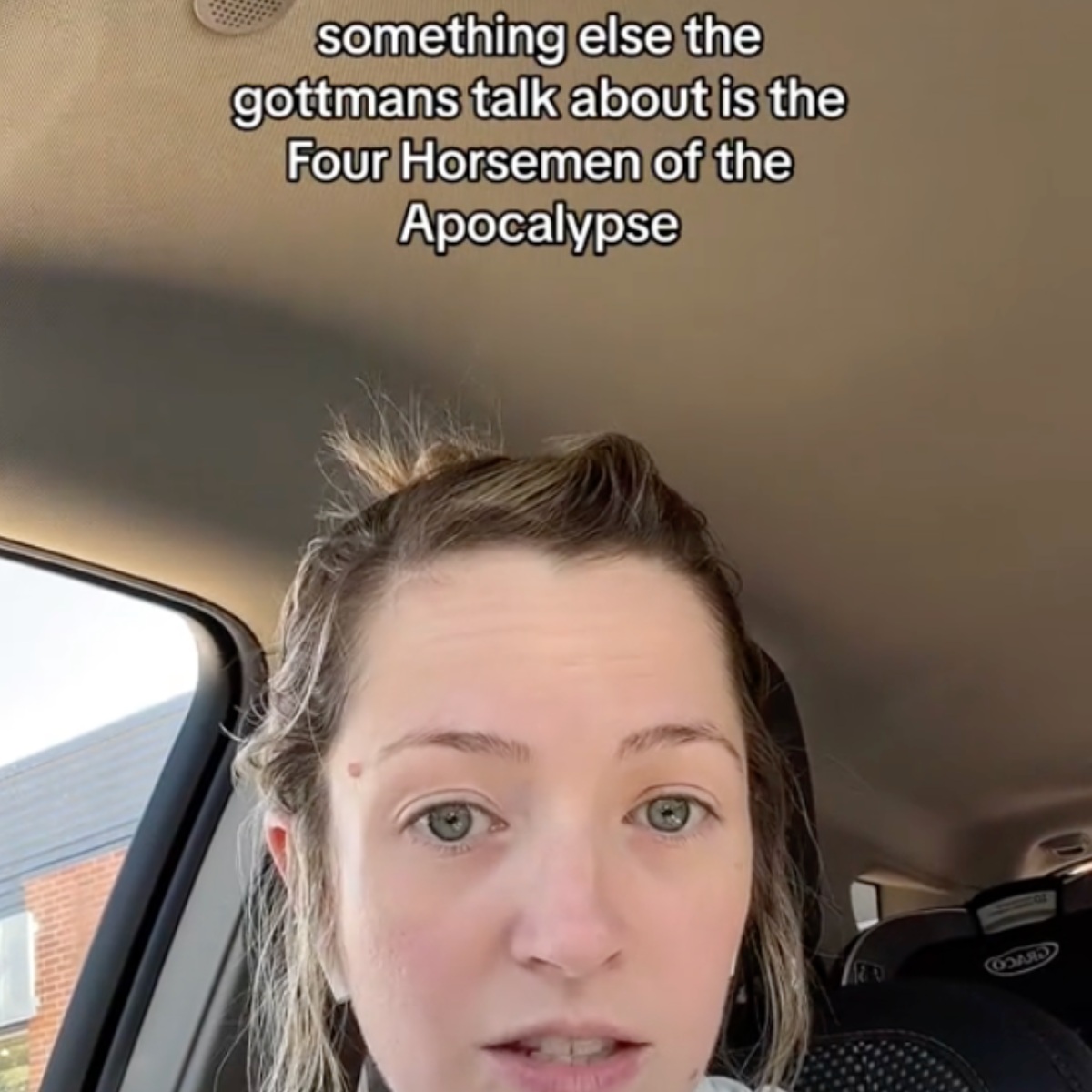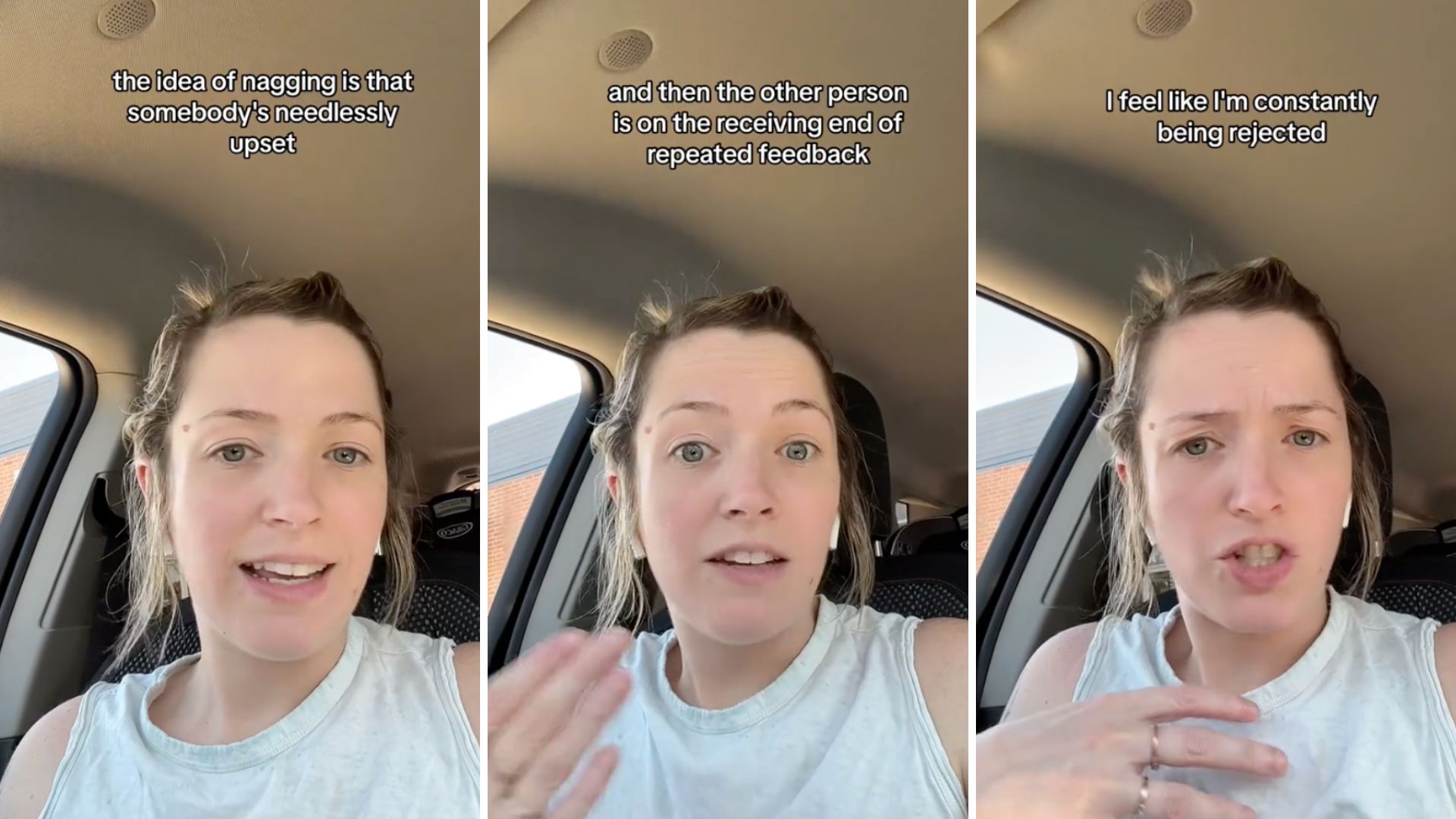Woman On TikTok Explains The Nag Paradox And What It Does To Your Relationship
I keep complaining, telling him what to do. He keeps doing it wrong, then I complain more and we keep fighting. Sounds familiar?
Most of my friends have the very same issue in their relationships, and they see no way to escape the nagging loop. Some of them are “the complainers” and some of them are the ones receiving complaints.
While thinking about this great problem in relationships I stumbled upon a video on TikTok. The user thatdarnchat A.K.A. Laura Danger opened a discussion about “the nag paradox” and she defines it as:
“…a setup when one person is managing and delegating and decision making and standard setting…”
At the same time, the other person has a supporting role and they wait to be told what to do, directed, and managed around the house.
Laura says this is very common, she even admits there’s the same setup in her relationship:
“Tell me what to do. How can I support you? Just let me know how I can show up for you.”
Then she explains why it’s a trap. When one person is in charge of everything and is forced to ask for help, then it becomes:
A bid for connection
She refers to Dr John Gottman’s bid theory as one of the key concepts of The Gottman Method and explains it is a bid when:
“… basically anytime you invite somebody to join you.”
It can be a dinner invitation or it can be a suggestion to clean the house together or even showing interest in how his day at work was.
People can “turn toward”, join the invitation, talk and be interested, or reject it, or even miss “the call”.
Any attempt to engage with your partner, verbal or non-verbal is considered a “bid”. You can ask questions, talk about something, or touch them. The way you and your partner respond to these bids can be a relationship game changer.
If your response is attentive you’ll build trust, emotional connection, and intimacy, and foster deep and meaningful bonds.
Rejecting and missing is bad for a relationship. If one partner constantly feels being rejected then they’ll become distant and will stop asking for a connection.
Then, there is something else that Gottman talks about. It is the:
Four Horsemen Of The (Relationship) Apocalypse

Certain behaviors can predict the ending of a relationship but Laura focuses on two: criticism and defensiveness are the core behaviors involved in the nag paradox.
One person is always giving directions and instructions and …
“If you don’t get it right or if something else needs to be done, they have to give back feedback repeatedly.”
While the second person is “on the receiving end of negative feedback” and even when they’re only suggested how to adjust the way they’ve been doing something so they do it better, it makes them feel undervalued as a person.
They start doubting themselves and their abilities. Feel undermined. This provokes defensiveness as they feel the need to protect themselves.
“This dynamic is a setup for that.”
After some time a partner who keeps getting negative feedback gets fed up. They decide they don’t wanna expose themself to feeling miserable, feeling like they can’t do anything right and are constantly letting down their partner.
At the same time, the nagging partner feels like constantly being rejected.
So the right thing to do in a relationship, as Laura explains it, is to talk about it and instead of assuming. Talk about the mental load, and agree on who’ll be in charge of making decisions.
The fact is many couples have regular quarrels about this and the majority of people believe this is normal:
“… the whole honeydew list, being told what to do, bossed around.”
At the same time, people who are upset about all this are being called “nags” and this really undermines the seriousness and all the implications this issue can bring to a relationship.
Also, the overall opinion about nagging is giving people a wrong idea about what the nagging is essentially:
“The idea of nagging is that somebody is needlessly upset about something that doesn’t matter.”
This is far from the truth. Laura emphasizes how household labor MATTERS as it “runs our lives”, building a connection to our partner matters and it’s not nagging. It’s the call for partnership.
“What if the bid is something I don’t enjoy?”
Over 1200 comments below the video underline the importance of this topic. Obviously, people can recognize their relationship dynamics in Laura’s examples.
ADHDWitch was wondering what if she doesn’t enjoy the bid? She gives an example of her partner’s bid: to drive 45 minutes in one direction with kids to get food. Not very enjoyable, right?
Another user, animalhouse shared the problem with her husband is basically “the nag paradox”:
“My husband thinks saying ‘how can I help’ is enough and when I say ‘you should know what needs to be done.’ He’ll say ‘make me a list.’”
Another example perfectly describes what was Laura talking about – one partner is nagging other one gets defensive:
“Then what do you do if your the “nag”?? Even pointing out this dynamic is just perceived as nagging and met with defensiveness. I’m so tired”
A user Sera described the nag paradox with a never-satisfied perfectionist – no matter how much she does, her partner always wants more:
“I feel like both people in this situation because I’ll be putting in 200% effort. and the 80% person will ask me why I’m not doing 220%.”
For me, this was an eye-opening perspective. When I think about it, it all makes sense! Make sure to follow this advice and try to build a relationship based on responsiveness and open communication and then it will produce trust and strong bonds.
If you want to dive deep into the video it is available here:







